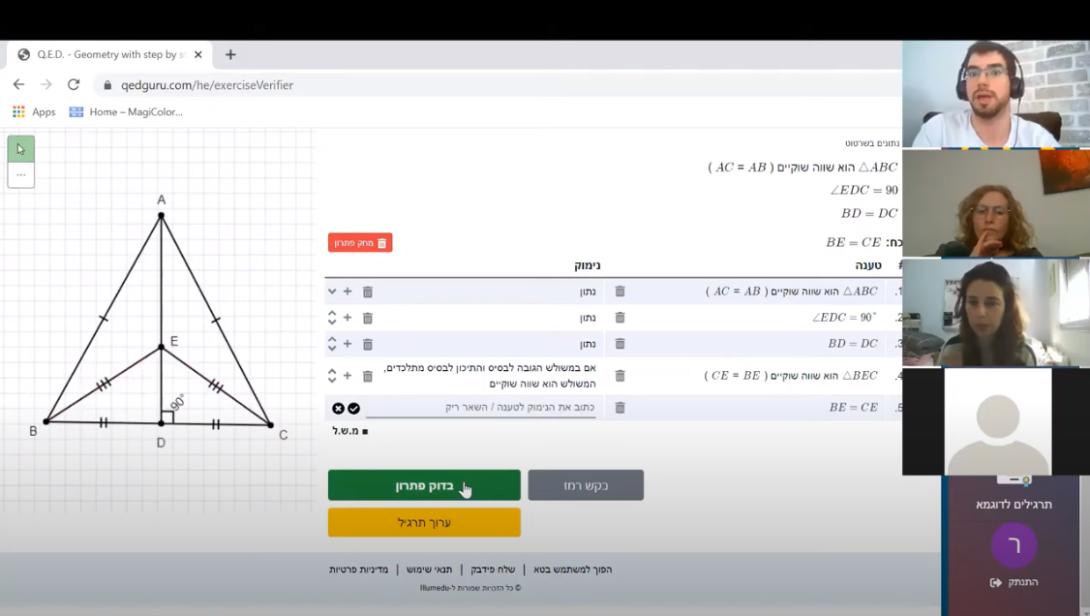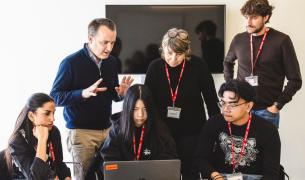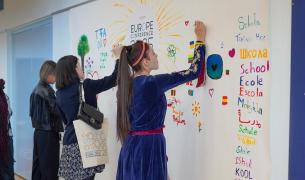Teach First Israel Hosts Online Teaching Workshops for Hundreds of Israeli Educators

As in many countries around the world, in mid-March suddenly, and with no preparation, all schools in Israel were shuttered and soon thereafter went online. In three weeks, the education system was forced to modernize by three decades! The abrupt changes caused Teach First Israel staff members and fellows to ask themselves, “Where does this leave teachers, who were never trained in online delivery and classroom management?” and “How can Teach First Israel tackle education inequality when so many of the children we teach lack the skills and equipment needed to make remote learning successful?”
In late March, just a few weeks into the COVID-19 crisis, Teach First Israel’s Training and Support Coordinator Roi Hertz had a conversation that sparked a big idea. He was speaking with a Teach First Israel fellow who had no idea how to manage remote learning, which led Roi to seek advice from other fellows he currently supports. He learned that many of them were finding creative ways to reach their students, and that they had developed effective techniques and helpful guidance that could be shared broadly.
Roi organized a group of five fellows and alumni to create a platform for sharing their knowledge via Zoom workshops on the subject of “How to do online learning right.” Over the course of three days during spring break, they offered more than 20 sessions on various subjects, including: Using Instagram for teaching, Classroom management from afar, Doing science experiments from home, and How to manage a dialogue with students through digital platforms. Dozens of virtual classroom tools were shared, including Google Classroom, Wizer, EdPuzzle (co-founded by Empieza por Educar alumnus Quim Sabria), and more.
The workshops, which were open to all of the country’s teachers and administrators, attracted more than 600 attendees from more than 80 schools. Three quarters of the attendees were teachers and school leaders from outside of the Teach First Israel community, who heard about the initiative from word of mouth.
“We made room for everyone, everyone could find something they need—a mix of different practices, disciplines, subjects,” explained Roee Amiga, one of the leaders of the initiative. “We understood how much each of us has to offer, so we felt the need to spread it with others!”
Educators who were unable to attend the workshops—or want to revisit the content—can watch the recordings on YouTube. The sessions were also showcased in a pamphlet Israel’s Ministry of Education produced with tools for teaching during the pandemic.
We’re inspired by the innovation, entrepreneurship, and passion of Teach First Israel’s community of educators and look forward to learning more about the impact of this and other efforts to ensure their students #DontStopLearning while schools are closed.


